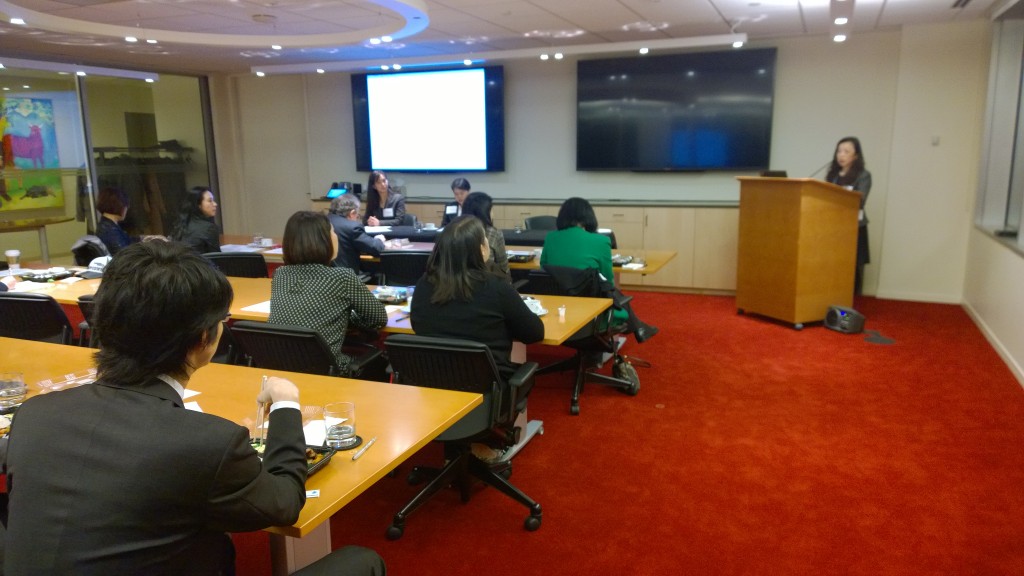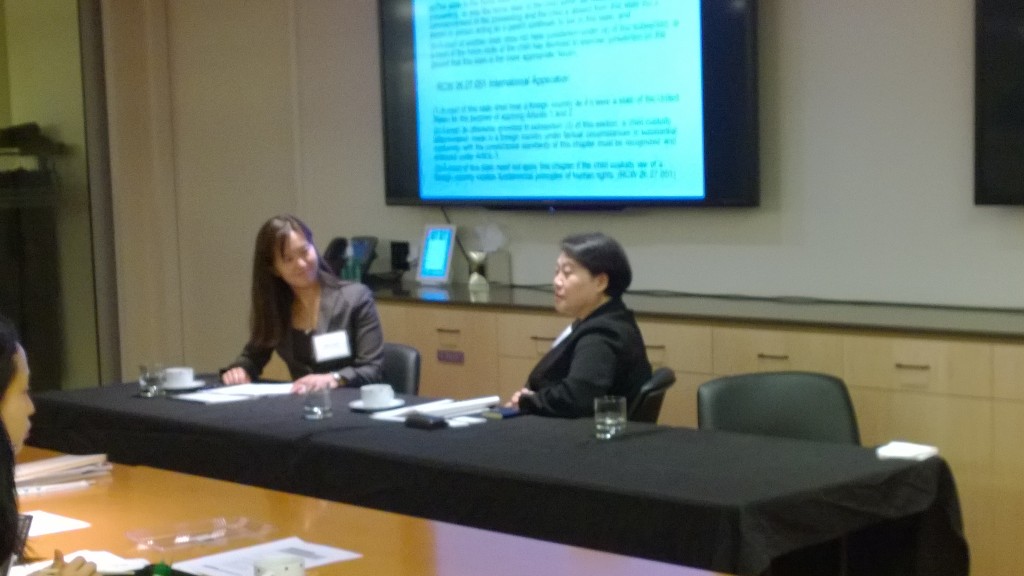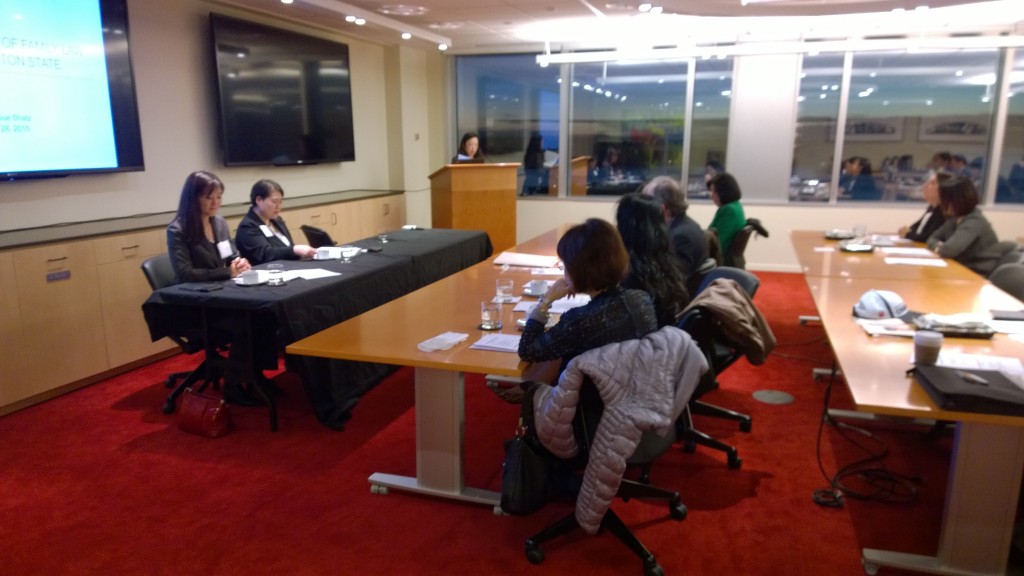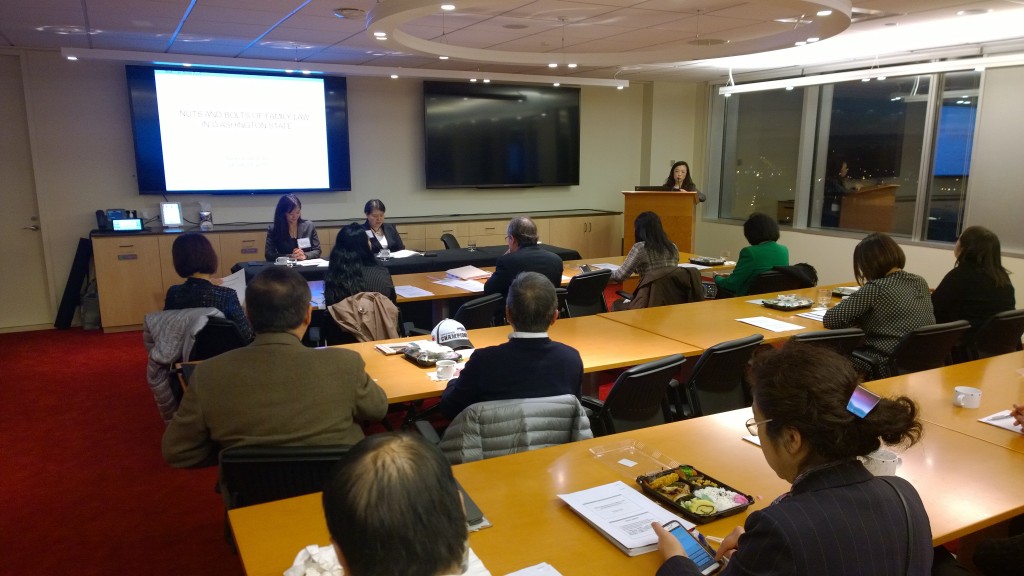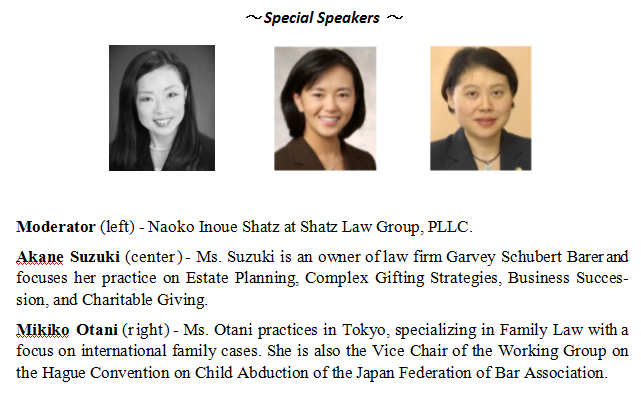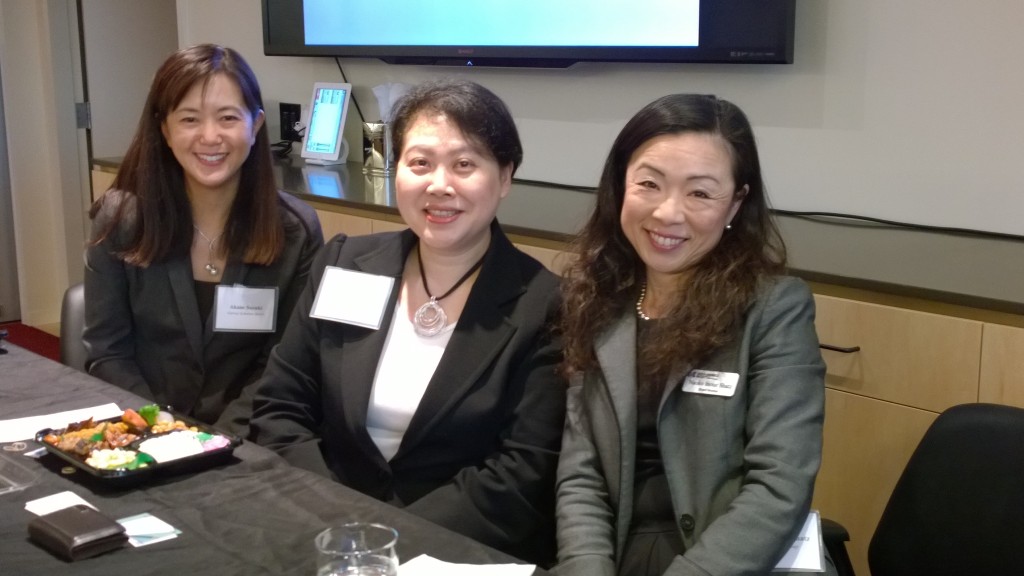
We had a highly engaging and eye-opening discussion at our Family Law lecture event where lawyers Naoko Inoue Shatz, Mikiko Otami, and Akane Suzuki shared their expertise in dealing with U.S. – Japanese marital legal cases. We learned the startling contrast between the U.S. and Japan’s approach to child custody after divorce, how assets held in different countries are divided upon a spousal death, and how the courts decide which country has the jurisdiction to rule on cases.
Did you know??
In Japan, there is no such thing as ‘shared’ custody. Custody is given to a single parent and the other parent’s rights to the child are completely terminated.
For decades Japan stood by the side of its citizens who fled a foreign country to return home to Japan, taking their children with them without the consent of the foreign parent. This caused immense trouble for foreign parents as once in Japan the spouse could file for sole custody, and the parent could possibly never see their child again. On January 24, 2014, Japan finally signed the Hague Convention on International Child Abduction, joining the U.S. and 78 other countries who subscribe to the treaty. A parent can now be ordered by the courts to return a child who was taken unlawfully from one country to another.
Since 1985, the U.S. has allowed ‘no-fault divorces’, which means you do not need to prove spousal wrong-doing in order to get a divorce. However in Japan, you have to prove why you should be allowed to divorce. Common reasons often used in the U.S. such as falling out of love and irreconcilable differences are not valid. A serious action that caused the breakdown of the marriage must be proved, such as abuse, abandonment, or adultery.
Washington State is one of nine other states in the U.S., such as California and Texas, where the law says that any money you earn working while married, or any property bought or inheritance or gifts received while married is considered ‘community property’. This means it belongs to both you and your spouse, and will be split between you in a divorce.
In Japan, there may be a lump sum settlement in divorce cases where one person is at fault and the other claims emotional damages, but there is no monthly alimony or child-support that a person must pay their spouse. If a person is asking for a divorce because their spouse committed adultery, they can claim damages from the spouse’s lover as well as the spouse.
There was a lot of enjoyable debate and discussion; thank you to everyone who came, asked questions and shared their opinions and personal experiences to make it a truly thought-provoking night!
Enjoy the highlights below:

